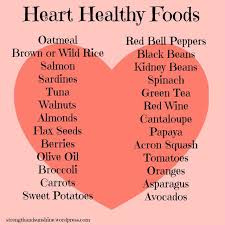Leave a Comment:
1 comment
Because I have afib and am taking Eliquis the Curcumin, resveratrol and green tea are contraindicated however the Omega 3 seems like a good supplement for me??
Reply
Learn about conventional, complementary, and integrative therapies.
Dealing with treatment side effects? Learn about evidence-based therapies to alleviate your symptoms.
Click the orange button to the right to learn more.

“These findings provide further insights regarding the impact of omega-3 PUFAs administration on left ventricle performance indices, systemic inflammation and fibrosis biomarkers in patients with ischemic HF.”
That excerpt from the study linked below pretty much says it all. At least for me. I have been living with chronic atrial fibrillation (afib) since late 2010, and a mix of heart failure symptoms since then that I chalk up to a diagnosis of chemotherapy-induced cardiomyopathy (CICM) by a cardio-oncologist in January of 2019.
I’ve seen and experienced what conventional therapies can do to patients, both oncology and cardiology patients. Any upside or benefit of toxic therapies comes with short, long-term and late stage side effects.
Further, I think many people would rather take a pill to pee out excess fluid retention than sit in a sauna every morning before they exercise. Or they would rather take a blood thinner pill in order to reduce their risk of stroke. I have and would rather research and take the 5 or 6 non-toxic therapies shown to reduce my risk of stroke. Omega-3 fatty acids for example.
Please don’t misunderstand me. Conventional medical physicians such as oncologists and cardologists are usually well-educated, well-intentioned M.D.s. However, I believe that medicine should be about healing and not about prescribing FDA approved therapies.
Therefore, I am going to manage my CICM, as best I can, for as long as I can with evidence-based non-toxic therapies such as omega-3 fatty acids aka fish oil. I began supplementing with omega-3s more than ten years ago. Fish oil enhanced chemotherapy while it reduces the toxicity and therefore the side effects of that chemotherapy. Unfortunately, I didn’t know about evidence-based integrative therapies such as fish oil when I was undergoing conventional treatements for my cancer.
I’ve learned a lot since my cancer treatment in ’95. So here we are…Evidence-based, non-toxic heart health therapies- from fish oil, to sauna, to exercise (moderate), to heart healthy foods. I plan to write about ever therapy I research and then experience.
For the record, I have already researched and written about sauna, exerise, etc. It will be another few months before my next echocardiogram so stay tuned.
Have you been diagnosed with heart failure? Chemotherapy-induced cardiomyopathy? Afib? To learn more about heart healthy supplementation, nutrition, and lifestyle therapies scroll down the page, post a question or comment and I will reply to you ASAP.
Thank you,
David Emerson
“A cohort study done by UK Biobank evaluated the associations between frequently taking fish oil supplements and all-cause mortality, cardiovascular disease (CVD) mortality, and CVD events, and found marginal benefit against CVD events among the general population…
Overall, the findings indicated that habitual fish oil supplementation was associated with a 13% lower risk of all-cause mortality, a 16% lower risk of CVD mortality, and a 7% lower risk of CVD events among the general population.
The results of the study align with several other previous studies that claimed the benefits of fish oil supplements in lowering the risk of CVD events. According to the study authors, possible explanations for the conflicting results of previous studies may be due to their insufficient sample sizes, events, and dosage of fish oil…”
“Polyunsaturated fatty acids (PUFAs) may affect the cardiovascular system with a multiplicity of mechanisms. We assessed the effects of omega-3 PUFAs supplements on
of ischemic heart failure (HF) patients…
Treatment with omega-3 PUFA, compared to placebo, improved: left ventricle EF (percent increased by 4.7% vs 1.7%); global longitudinal strain (decreased by -10.6% vs -2.3%); the E/e’ ratio (decreased by -9.47% vs -2.1%); ST2 levels (decreased by -4.53% vs -2.37%); flow mediated dilation (percent increased by 44% vs. 11% and hsCRP levels (decreased by -6.13% vs 4.35%) (p < 0.05 for all).
CONCLUSION: Short term treatment with omega-3 PUFAs in subjects with stable ischemic HF improved:
These findings provide further insights regarding the impact of omega-3 PUFAs administration on left ventricle performance indices, systemic inflammation and fibrosis biomarkers in patients with ischemic HF.”
“Heart failure (HF) affects 5.7 million in the U.S., and despite well-established pharmacologic therapy, the 5-year mortality rate remains near 50%. Furthermore, the mortality rate for HF has not declined in years, highlighting the need for new therapeutic options.
Omega-3 polyunsaturated fatty acids (ω3-PUFAs), eicosapentaenoic acid (EPA) and docosahexaenoic acid (DHA), are important regulators of cardiovascular health.
However, questions of efficacy and mechanism of action have made the use of ω3-PUFAs in all cardiovascular disease (CVD) controversial.
Here, we review recent studies in animal models of HF indicating that ω3-PUFAs, particularly EPA, are cardioprotective, with the results indicating a threshold for efficacy.
We also examine clinical studies suggesting that ω3-PUFAs improve outcomes in patients with HF. Due to the relatively small number of clinical studies of ω3-PUFAs in HF, we discuss EPA concentration-dependency on outcomes in clinical trials of CVD to gain insight into the perceived questionable efficacy of ω3-PUFAs clinically, with the results again indicating a threshold for efficacy.
Ultimately, we suggest that the main failing of ω3-PUFAs in clinical trials might be a failure to reach a therapeutically effective concentration.
Finally, based on mechanistic animal studies suggesting that EPA prevents interstitial fibrosis and diastolic dysfunction, we speculate about a potential benefit for EPA-Ffar4 signaling in heart failure preserved with ejection fraction.”
Because I have afib and am taking Eliquis the Curcumin, resveratrol and green tea are contraindicated however the Omega 3 seems like a good supplement for me??
Reply